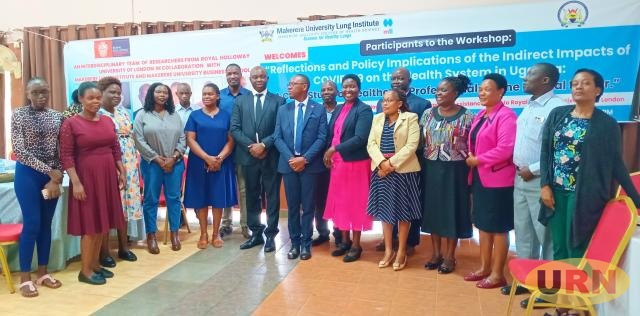
KAMPALA, UGANDA | THE INDEPENDENT | Public health experts in Uganda are warning that the country is at high risk of future pandemic outbreaks, largely driven by poor environmental management, self-medication, and widespread misuse of drugs among the population.
Dr. Daniel Kyabayinze, Director of Public Health in the Ministry of Health, explained that Uganda’s rapid population growth has led to environmental encroachment and irresponsible use of preservatives in food production.
According to Dr Kyabayinze, these unregulated practices can trigger pandemics resulting from cross-species disease transmission, as well as amplify spillover and back-spill infections between primates and humans. These risks, he added, are exacerbated by weak health systems and poor response capabilities in neighbouring regions.
Dr William Worodria, a Senior Consultant Physician and Pulmonologist at Mulago National Referral Hospital highlighted the risk of transmission from animals, including pets, which can carry viruses, bacteria, parasites, and fungi that pose threats to humans. He noted that while animals may appear healthy, they can still harbour pathogens capable of causing illness in humans.
The experts voiced their concerns on Wednesday at a meeting at Silver Springs Hotel in Kampala, where researchers from Makerere University Lung Institute, Makerere University Business School, and Royal Holloway University of London shared findings on the policy implications of COVID-19’s indirect impacts on Uganda’s health system.
Dr Maureen Ayikoru from the Centre for Research into Sustainability, Royal Holloway University of London, who led the interdisciplinary research, highlighted that their study analyzed Uganda’s healthcare system during 2021-2022, focusing on healthcare professionals’ (HCPs) experiences during the first year of the COVID-19 pandemic.
Uganda has historically faced outbreaks of diseases like Ebola, Marburg, yellow fever, anthrax, Rift Valley fever, meningitis, avian influenza, Crimean-Congo hemorrhagic fever, and cholera. However, the worst was the COVID-19 pandemic, which claimed 3,632 lives from 172,149 recorded cases, of which 100,431 patients recovered.
The study indicated that despite numerous challenges, Uganda’s response to COVID-19 demonstrated some positive outcomes, including swift adaptation to infection control measures, local production of personal protective equipment (PPE), and crucial support from the private healthcare sector.
The resilience of Uganda’s healthcare workforce was also highlighted, with healthcare professionals utilizing informal networks to overcome resource shortages and provide care under difficult conditions.
“Findings underscore the need for better logistical coordination and equitable resource distribution,” said Dr. Ayikoru. “The healthcare sector’s adaptability during the crisis offers valuable insights for future pandemic preparedness.”
The study concludes with recommendations for improving Uganda’s preparedness for future public health emergencies, focusing on areas critical to healthcare professionals but with potential benefits for society at large.
*****
URN
 The Independent Uganda: You get the Truth we Pay the Price
The Independent Uganda: You get the Truth we Pay the Price



